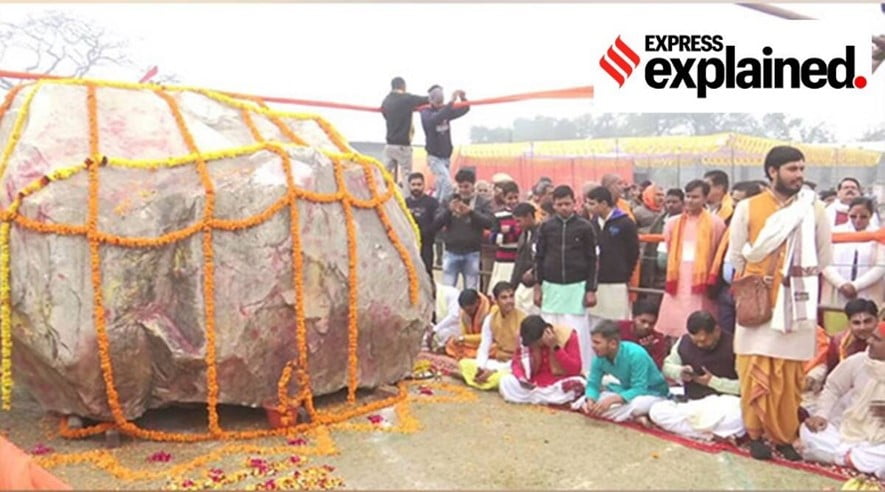History and Art and Culture
Context: Two sacred Shaligram stones, weighing 31 tonnes and 15 tonnes, arrived in Ayodhya in Uttar Pradesh. The stones are expected to be used for constructing the idols of Lord Ram and Janaki at the Ram Temple.
About Shaligram Stones:

- Shaligram stones are fossils of ammonite, which is a type of mollusc that lived between 400 million and 65 million years ago.
- Shaligram stones date specifically from the Early Oxfordian to the Late Tithonian Age near the end of the Jurassic Period some 165-140 million years ago.
- It is mostly found in riverbeds or banks of the Kali Gandaki, a tributary of the Gandaki River in Nepal.
- This stone is revered by Hindus who believe it to be a representation of Lord Vishnu.
- The stone is considered to have divine powers and is seen as a symbol of good luck and prosperity.
- Significance:
- Lord Ram is believed to be the reincarnation of Lord Vishnu, and the use of the Shaligram stone symbolises the connection between the two gods.
Source: Indian Express
Previous Year Questions
Q.1) Consider the following pairs:
Site of Ashoka’s major rock edicts Location in the State of
- Dhauli Odisha
- Erragudi Andhra Pradesh
- Jaugada Madhya Pradesh
- Kalsi Karnataka
How many pairs given above are correctly matched? (2022)
- Only one pair
- Only two pairs
- Only three pairs
- All four pair
Q.2) With reference to Chausath Yogini Temple situated near Morena, consider the following statements:
- It is a circular temple built during the reign of Kachchhapaghata Dynasty.
- It is the only circular temple built in India.
- It was meant to promote the Vaishnava cult in the region.
- Its design has given rise to a popular belief that it was the inspiration behind the Indian Parliament building.
Which of the statements given above are correct? (2021)
- 1 and 2
- 2 and 3 only
- 1 and 4
- 2, 3 and 4











